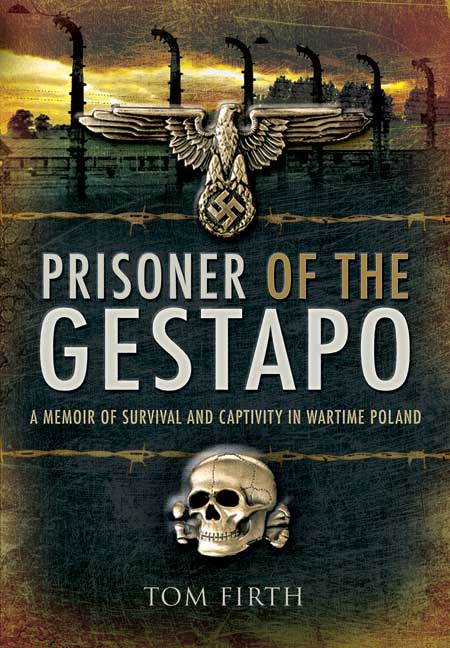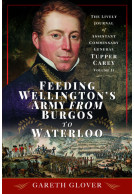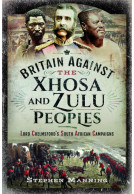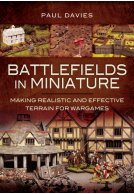Prisoner of the Gestapo (Hardback)
A Memoir of Survival and Captivity in Wartime Poland
(click here for international delivery rates)
Need a currency converter? Check XE.com for live rates
| Other formats available - Buy the Hardback and get the eBook for free! | Price |
|---|---|
| Prisoner of the Gestapo ePub (2.9 MB) Add to Basket | £6.99 |
Tom Firth begins his extraordinary memoir by describing his unusual childhood in Japan and the devastating Yokohama earthquake in 1923. In 1930 the family settled in his mother’s native Poland only to split up when Poland was overrun by the Nazis and the Russians in 1939. Whilst his father and older brother were in England, Tom found himself trapped in the Russian zone and eventually made his way to Warsaw where his mother had survived the bombing of the city.
He vividly describes life under both regimes, as well as the cat-and-mouse game his mother was forced to play with the Gestapo in order to avoid arrest. Later, both became deeply involved with the sheltering of escaped British prisoners of war and this led to his capture, interrogation and imprisonment in Krakow jail before being
miraculously released after eighteen months. After many harrowing experiences he got through to the Red Army only toe be imprisoned again. Held for several months in primitive conditions, he was finally handed over to the British Military Mission in Moscow.
He arrived in Britain for the first time as a supply convoy in late 1944. He describes the search for his lost father and brother. Even when re-united, tragedy struck with his mother’s arrest by the Polish Communists. Sentenced to death for alleged espionage, she spent several years in prison, being freed in a Government amnesty and arriving in England in 1956.
Tom Firth was born in Tokyo in 1922. He attended the English Mission School in Kobe before his parents moved to Warsaw in 1930. His dramatic experiences in war-torn Poland are the subject of this memoir. When he at last arrived in Britain he pursued a career as a designer in the motor industry. He married Wyn and raised a family. Shortly after retiring to Cornwall Wyn died.
The word 'unique' gets bandied about a lot of historical circles, but this book really is something special, and in all likelihood, the only one of its kind. And for so many reasons...
Daly History Blog - James Daly
... This book really is something else.
Starting by describing his unusual and often devastating childhood, Tom Firth captures his tragic experiences in a compelling and emotional way which makes a fascinating read for anyone. Tom recalls his memoirs of his childhood in the utmost detail, telling the story of his family being split up when Poland was overrun by the Nazis and Russians in 1939 after just nine years of living there. Tom was trapped in Russia whilst his older brother and father were in England and his mother in Warsaw, who had survived the bombing of the city. Eventually, Tom manages to make his way to see his mother and they both become involved in sheltering escaped British prisoners - which leads to Tom's arrest. Whilst in jail, Tom was frighteningly interrogated but was incredibly released after only eighteen months. He managed to get through to the Red Army, only to be imprisoned again and held for several months which led to him being handed over to the the British Military Mission in Moscow. Arriving in Britain for the first time in 1944 in the search for his lost brother and father, they are finally reunited after years apart. however, tragedy strikes again for Tom and his family when his mother is arrested by Polish Communists. Tom's mother was sentenced to death for alleged espionage but she was later freed in a Government amnesty and arrived back in England in 1956 after many years apart from her family. This book documents Tom's courage towards his shocking and emotional experiences, which creates an extraordinarily vivid read.
Brian R (Customer Review)
This book is the true memoirs of Tom Firth, a man who was a prisoner, twice during World War II and his search for his family, split apart by the war. Firth describes his life and the events he encountered, such as moving from Japan because of the Yokohama earthquake, split from his father and older brother, Firth and his mother playing cat and mouse with the Gestapo, sheltering british prisoners, his capture and interrogation in Krakow and his second imprisonment by the Red Army. When finally reunited with his brother and father there was still one more tragedy to strike. This book with photographs and artists renderings, is widely appealing for war historians, historical studies and for readers interested in personal emotional stories about courage in the face of adversity and a journey to find your family against all odds.
Sue (customer review)
This is the extraordinary and interesting memoir of Tom Firth. His childhood was in Japan and he survived the Yokohama earthquake of 1923. His family decided to relocate to his mother’s native Poland but unfortunately Poland was invaded by the Nazis and the Russians in 1939.
Military Archive Research.com
His father and elder brother were in England at the time but Tom was trapped in the Russian zone. He managed to get to Warsaw where his mother had survived the bombing of the city. His memoirs vividly illustrate the game he and his mother had to play to avoid capture and internment by both regimes. He managed to shelter escaped British Prisoners of War and this lead to his dramatic arrest by the Gestapo. They were most horrid to him during his interrogation and imprisonment. After eighteen months he was miraculously released only to be re-imprisoned by the Russian Red Army.
After being held by the Gestapo his Russian captors were equally awful. They held him in similarly primitive and degrading conditions. Eventually he was passed to the British Military Mission in Moscow and they arranged his transfer to Britain. He arrived in the UK with a supply column in 1944 and then he commenced the search for locating his close family. The family managed against all odds to re-unite but tragedy occurred when his mother was arrested by Polish Communists. They sentenced her to death but she was freed under a Government amnesty. She arrived in the UK during 1956.
The text details the exploits of an exceptional family and their tale is told in a fluid and vivid way. His style entraps the reader and he has produced a first class autobiography. The characters are brought to life and the reader is transported into the action just as if he was there in the first hand. It is a remarkable story and Mr Firth and his family were extremely lucky and fortunate to have survived all this and to be able to compose the book.
This is a fascinating book which details all his wartime life threatening situations and he has had most unique experiences. It is well worth reading and most enjoyable. It is a miracle that he managed to survive all these incidents and that he was able to put pen to paper. This in itself is quite an achievement.
This remarkable autobiography recounts the experiences of Tom Firth, an Anglo-Pole who spent his early childhood in Japan, before his family moved to Poland.
History of War Website
When war came the family was split. The author and his mother were in Poland, while his father and brother were in Britain. Even within Poland there was a split, with the author in the east and his mother in Warsaw. As a result they found themselves in different zones of occupation and the author found himself under Soviet rule.
In order to find his mother Firth applied to move to German occupied Poland. After some time at large he was arrested, and spent eighteen months in the custody of the Gestapo. After his eventual release he managed to cross through the front lines, expecting to be greeted as an ally. Instead he was arrested once again, and spent time in Soviet captivity before eventually reaching safety.
As a result Firth witnessed every phase of Poland's suffering during the Second World War, from the initial invasion to the arrival of the Russians. Unsurprisingly neither the Russians nor the Germans emerge well, although it is quite hard to decide who looks worst! In contract Firth and his fellow prisoners coped with their order in a very impressive way, co-operating in attempts to help other prisoners and even managing to get information out to the resistance, This is an enthralling tale of the best and worst of humanity and a valuable look insider two of the Twentieth Century's worst regimes.















